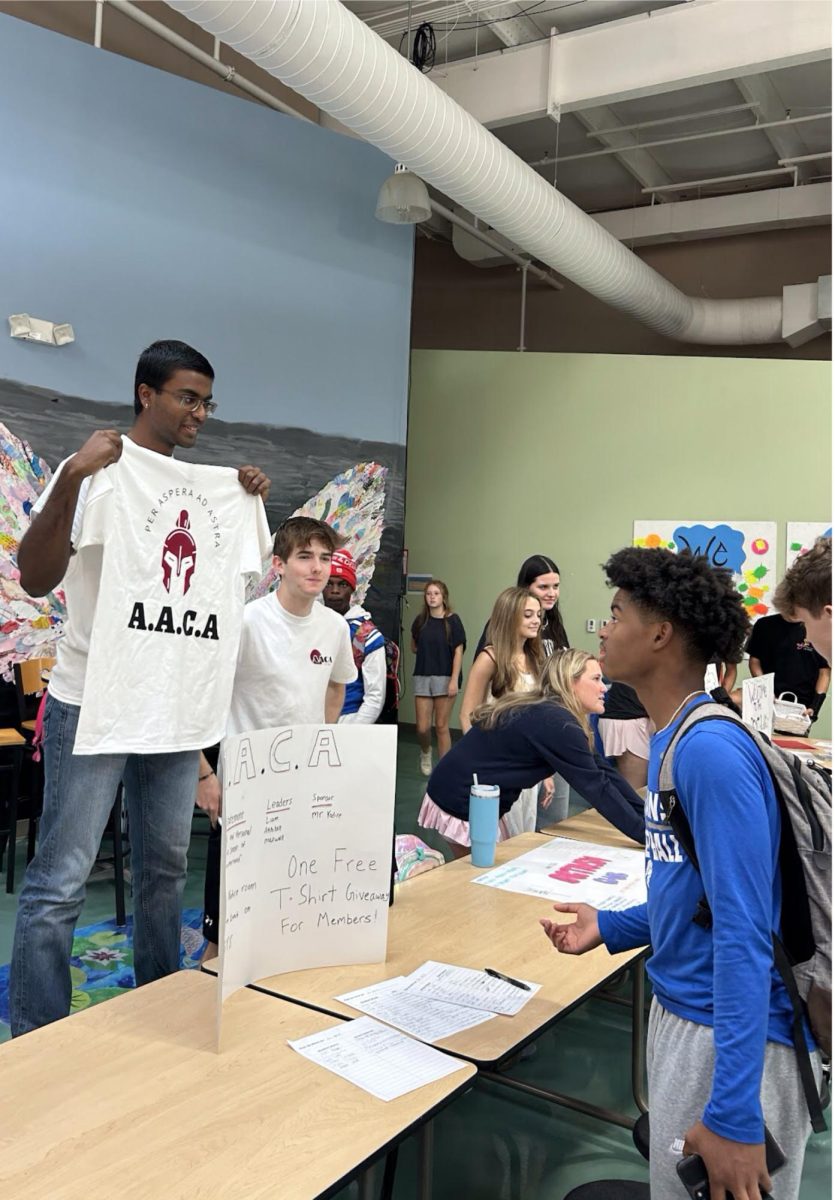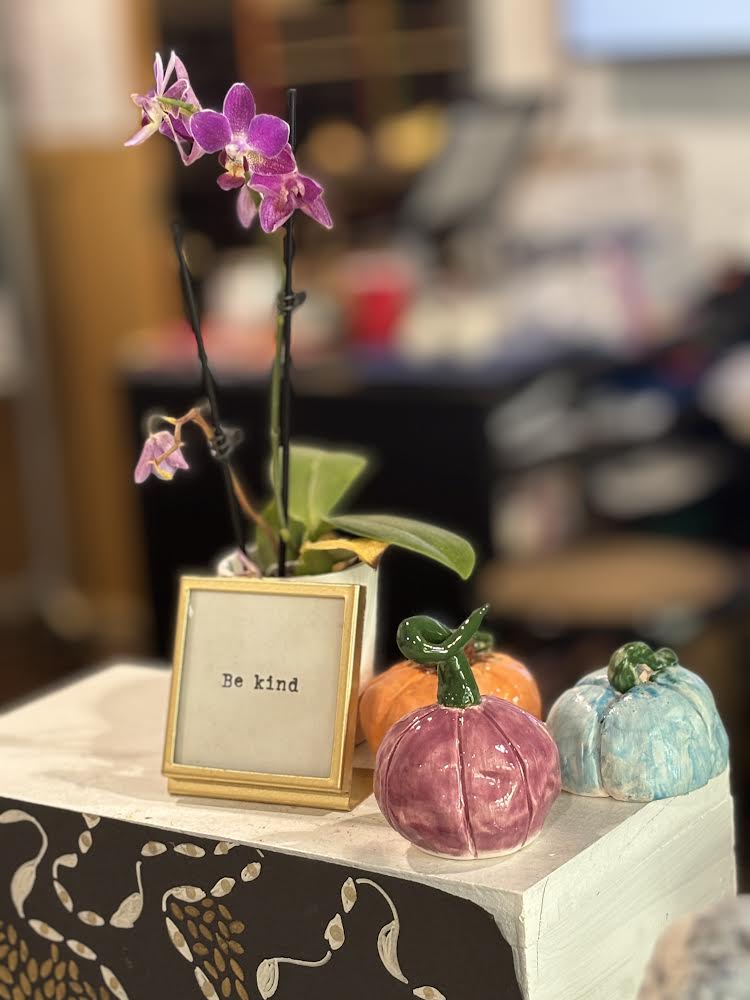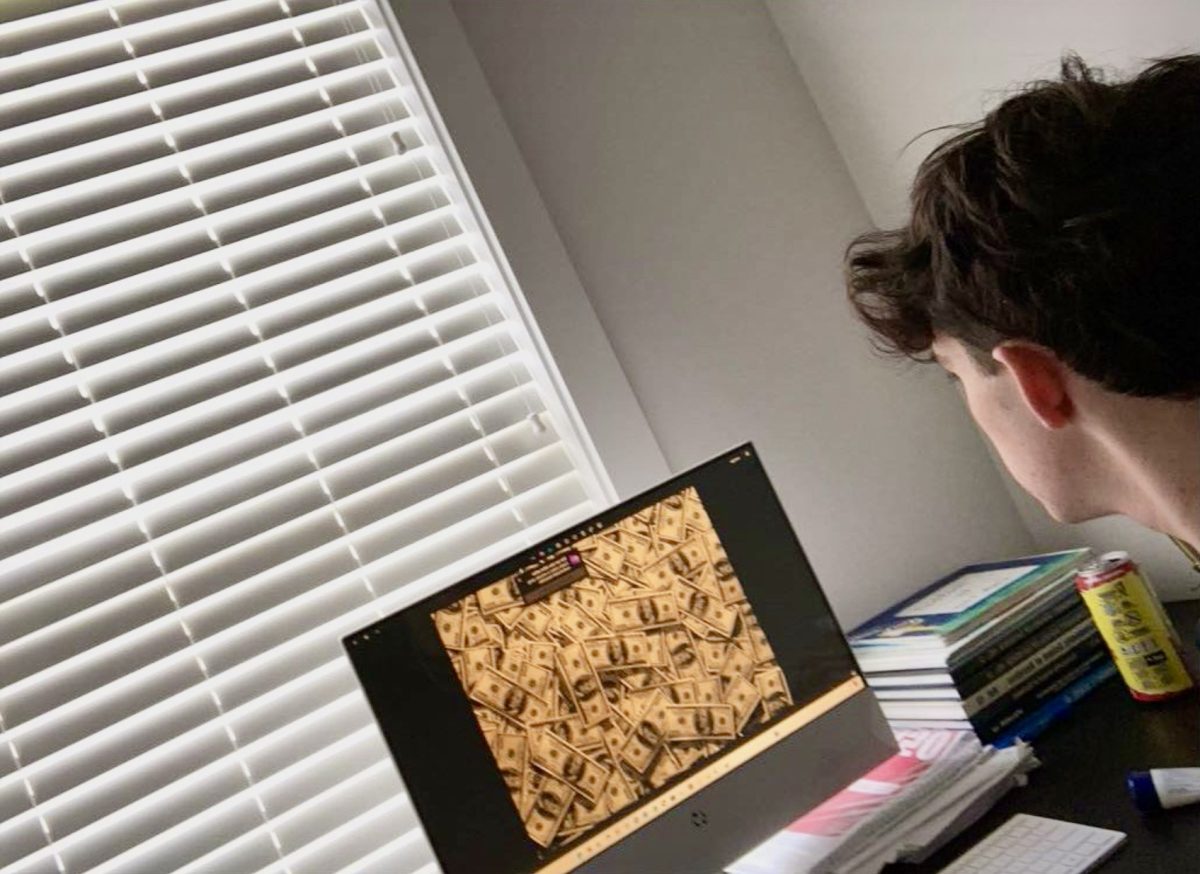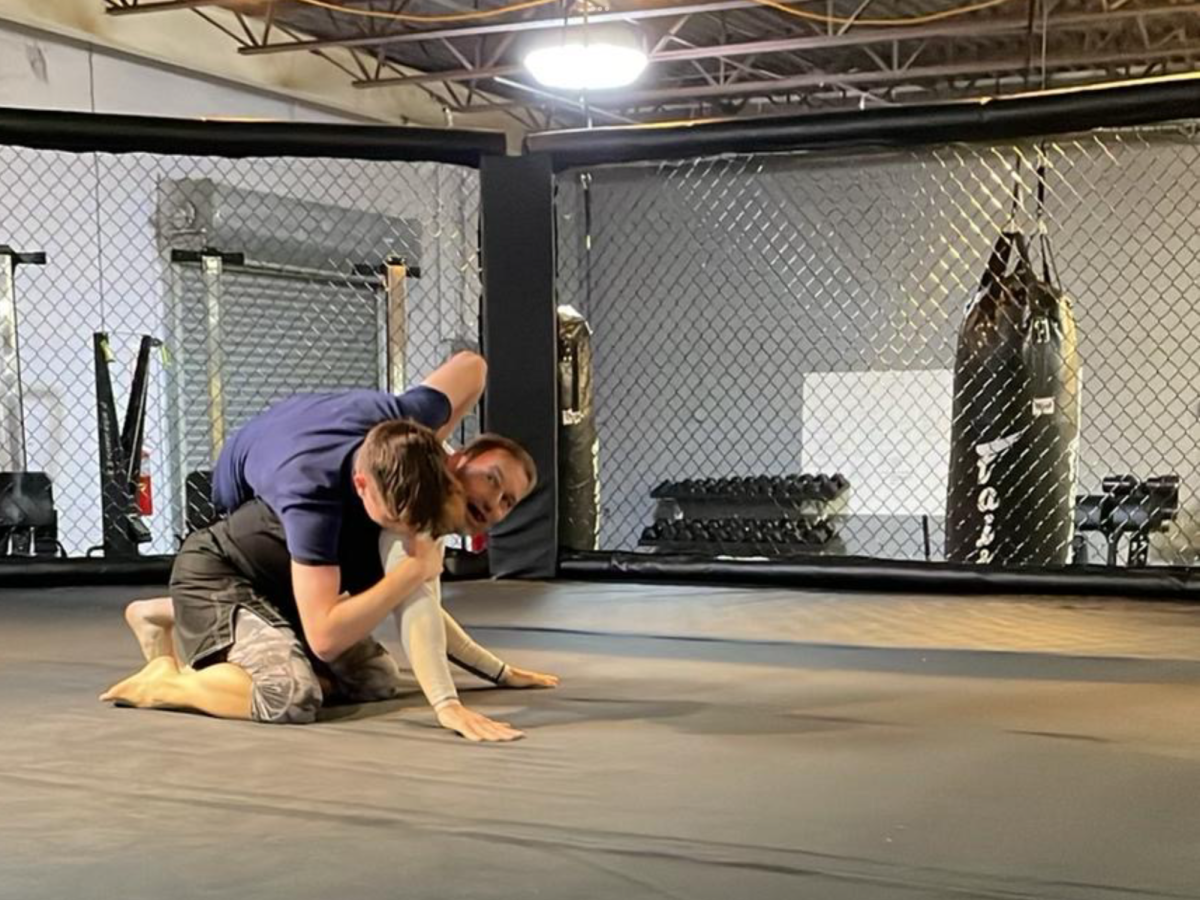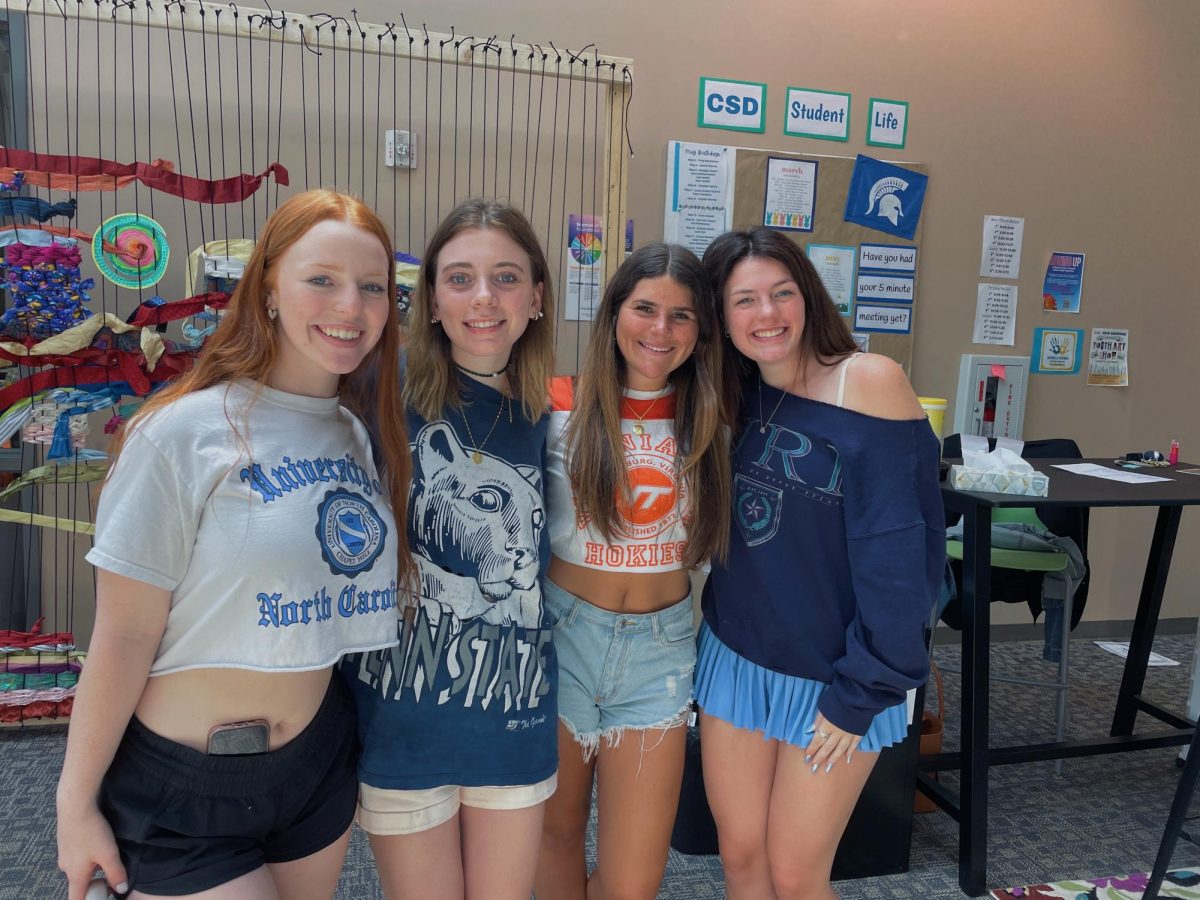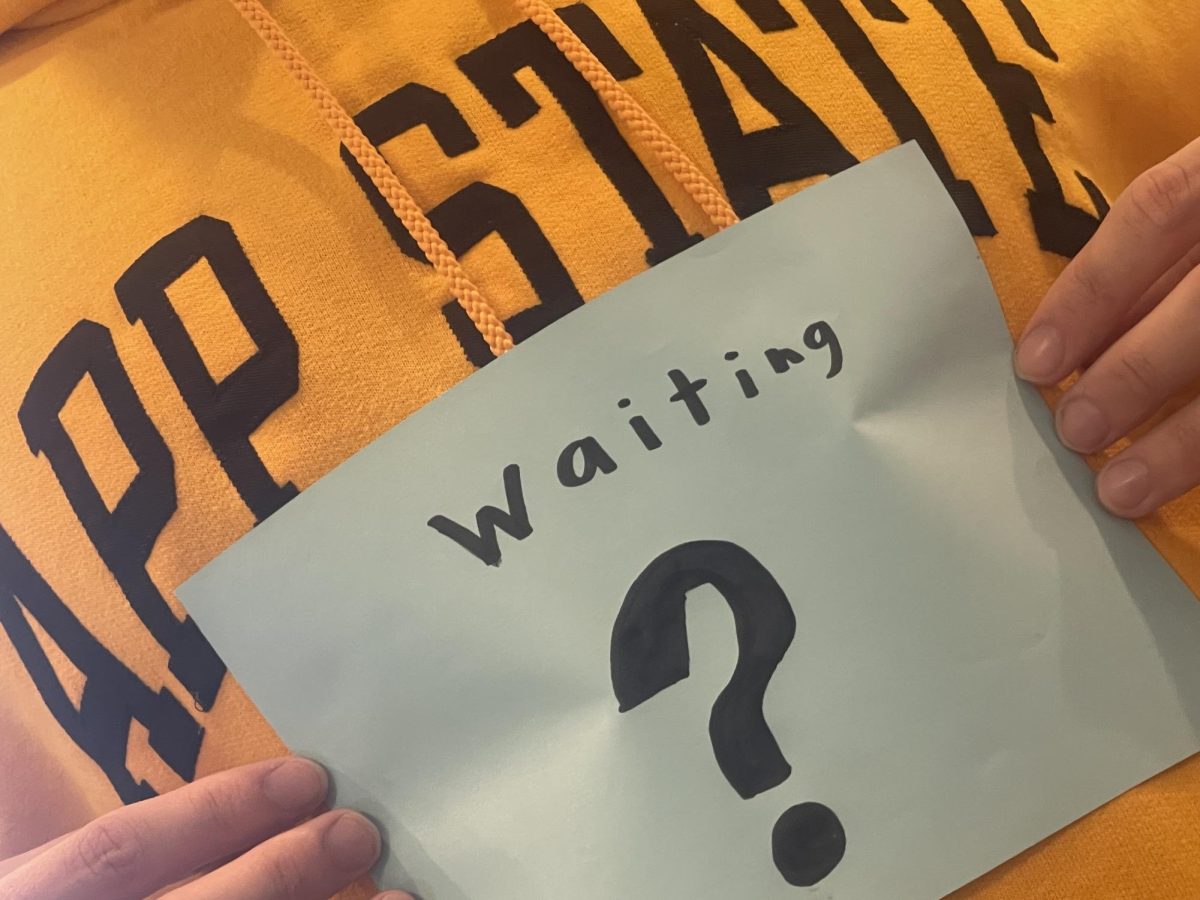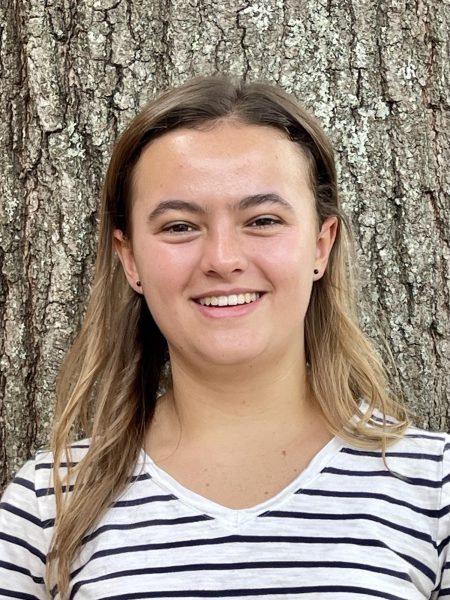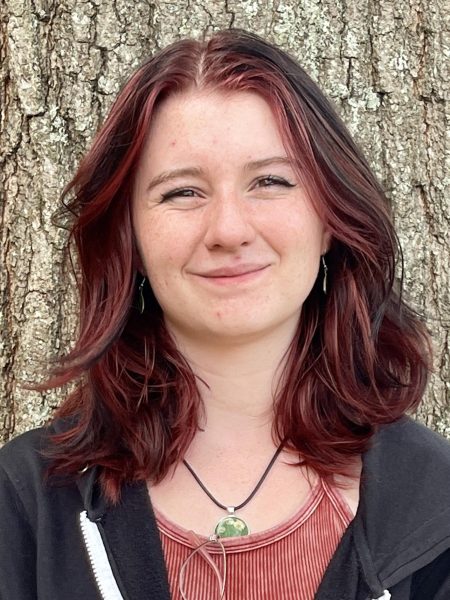At Community School of Davidson (CSD), in Davidson, North Carolina, students know clubs must be important when the experience of one, and the bonds formed during it, directly result in the creation of another. This is the story of three CSD students: Max Shealy (‘26), Akhilan Kumaran (‘26) and Liam Hogan (‘26), who are now the founders and leaders of CSD’s Allied Achievers and Comrades Association (AACA).
The Allied Achievers and Comrades Association is a service and mentorship based club dedicated to fostering personal development through the guidance of leaders as well as members. AACA provides a dynamic social environment which helps create mental resilience and academic skills as well.
The trio first bonded during AP Government class during the 2024 school year, joined Faith in the World Club together and developed not only a relationship but also the idea for their club in the process.
“We just started out helping each other outside of class, in class, and then we wanted to spread that across the school,” Akhilan Kumaran said.
“What we had, we wanted everyone to have, that sense of brotherhood and community,” Liam Hogan said.
Later, the three would come up with an idea for their own club, which they hoped would help people connect like they had during their experience in Faith in the World.
That feeling represents the greater club culture that exists at the school.
Many things can change for students as they join and lead clubs. Maturity and growth spike when students assume leadership roles and favorable traits come to light.
According to The National Center for Education Statistics, students who participated in clubs “reported better attendance than their non-participating classmates–half of them had no unexcused absences from school and half had never skipped a class, compared with one-third and two-fifths of non-participants, respectively.”
Shifting perspectives away from club leaders and instead towards club advisors yields some very enlightening opinions. A club advisor’s job is to provide guidance and help to the student leaders.
Math teacher, Dr. Henry Neale, believes CSD prides itself on making sure the school creates lots of opportunities for students to pursue their interests in the areas where they feel they can excel. He advises both CSD’s Honor Council, an organization now in its third year which functions like a club, as well as the Mountain Biking Club.
Dr. Neale thinks that the most important thing isn’t necessarily the competency of the club leader, but the interest of the student body.
“If kids are interested in it, it’ll be a successful club,” Dr. Neale said.“For Mountain Biking, it’s based strictly on ‘students have an interest in this area’ whereas Honor Council, that one was targeted at really trying to solve a problem that the school was facing.”
Clubs also strengthen student relationships.
Club leaders and advisors may have very important opinions on the creation and maintaining of clubs, but clubs could not exist without the student body. At CSD, which has a student body of around 500, most students are enrolled in an average of two clubs.
Katelyn Casiday (‘27), a second year member of the Trout Club, explains students may be swayed towards certain clubs based on the preparations leaders make, and how clubs have affected her personal relationships within and beyond CSD.
“You don’t want to have a bunch of clubs that aren’t orderly, you want a club that’s good quality, with a lot of people and everyone’s happy,” Katelyn Casiday said. “[High quality clubs] help me make new friends, and those friends have similar interests to me.”
While the process of joining clubs may seem daunting, she says that it is good to try anyway. She explains that her expectations for clubs were very different from reality.
“I expected to be lonely and sad, because I felt like I was going to be alone, but everyone was nice,” Casiday said.
For the student body, connections aren’t always necessarily with peers. Sometimes, the reasons for joining a club, or for sticking around, can be the advisors.
“[I joined the Trout Club because] I saw it, and I saw that Miss [Kristin] Patterson was running it, so I wanted to because of Miss Patterson,” Casiday said. “ [Club advisors can affect students’ club choices] a good amount, because if there’s a teacher you really love, you want to join.”
When CSD held its Club Fair during lunch on August 30th, Max Shealy, Akhilan Kumaran and Liam Hogan put their club idea to the test for the first time. Would students be interested in a new club that promotes the values and relationships they first felt a year earlier?
The Club Fair was the perfect start to what is looking like an amazing year of clubs for CSD students so far. At least 36 clubs of all kinds advertised to students, including Book Club, Video Game Club, Women in STEM, Future Health Professionals Club, and many more. After a busy morning finishing posters, printing sign-up sheets and setting up stands, students flooded into the Arts Commons, excited to hear about all the available club options.
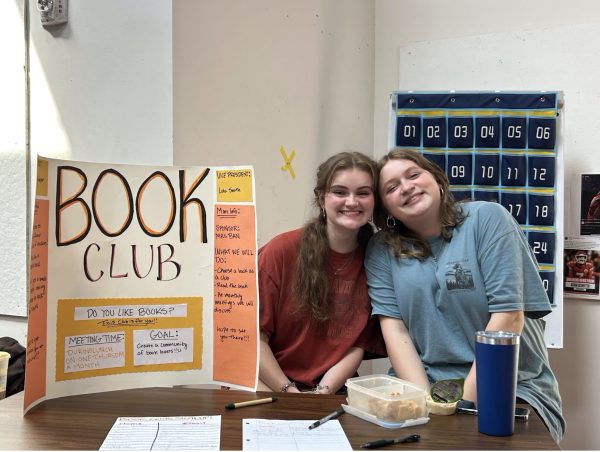
(Elena Cunningham)

(Macy Balmat)
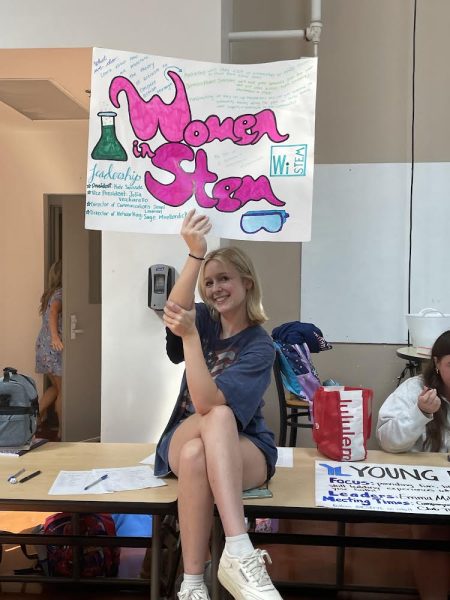
(Macy Balmat)
For the AACA trio, the results speak for themselves. The results of the Club Fair show clearly that students wanted those same things, too. Their AACA attracted 46 student sign-ups and more than two dozen attended the first meeting.
“It definitely increases our confidence,” Kumaran said about the number of signups.
“I’m feeling great. We’ve got tons of activities planned, and [AACA is] going to be super fun,” Max Shealy said. “It’s going to be a great year.”
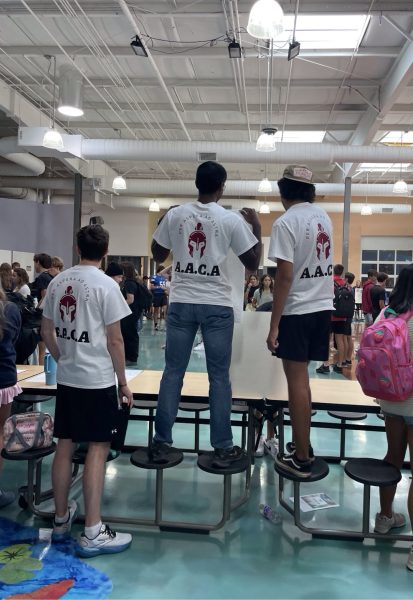
Some students may not assume that clubs have an impact that lasts longer than the club itself, but if you ask CSD juniors, Max Shealy, Akhilan Kumaran and Liam Hogan, they may disagree with you. Their experience in Faith in the World Club last year helped them bond, form a close friendship and come up with a new idea. It’s now time for their new idea, AACA, to take it to the next level.

